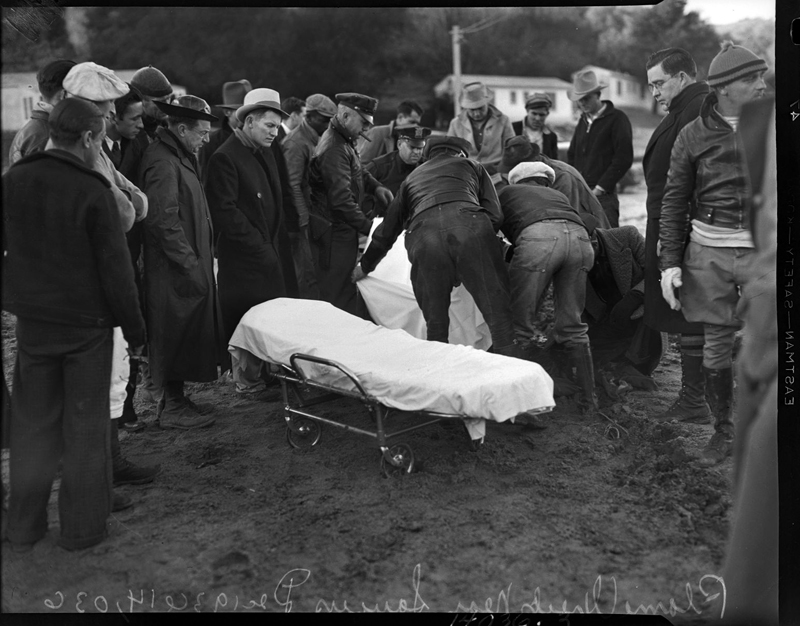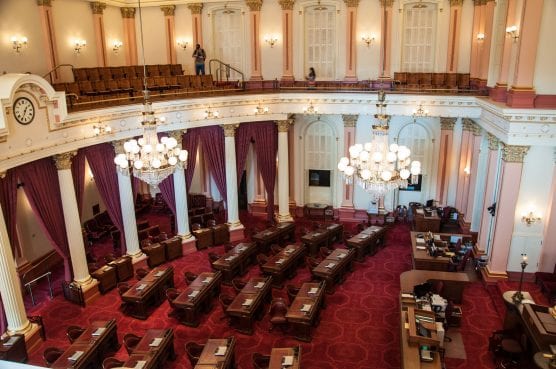By Martin Macias Jr.
LOS ANGELES – Lawmakers advanced a controversial bill Thursday that aims to reform California’s money bail system though recent amendments have alarmed advocates who say the current bill could authorize prosecutors and judges to promote indefinite pretrial detention.
Two police accountability measures that would open police misconduct files to the public and update police officers’ deadly use of force guidelines, respectively, were also advanced by lawmakers.
The Assembly Appropriations Committee voted Thursday to advance Senate Bill 10, which would replace the current money bail system with pretrial risk assessments that would allow most detainees to fight their legal battles from home, rather than a jail cell.
State Sen. Robert Hertzberg, D-Van Nuys, who introduced the bill in Dec 2016, unveiled amendments Thursday which would add risk-assessment tools overseen by the courts and strip pretrial release from individuals deemed high public safety risks.
A risk-assessment tool weighs factors in pretrial detainees’ background, including the current charges, prior convictions and a history of failure to appear in court, and then assigns the defendant a risk level based on those factors.
The amendments caused the American Civil Liberties Union to withdraw support for the bill.
Natasha Minsker, director of the ACLU of California Center for Advocacy and Policy, said in a statement Thursday that any bail reform bill should ensure due process for all residents and build in an independent analysis of data collection to identify potential racial bias in the system.
“For years, California’s money bail system has been among the most egregious examples of a two-tiered system of justice – a system that benefits the wealthy few and punishes low-income Californians, many of whom are black and brown people,” Minsker said. “SB 10 needs to go further to be the model for pretrial justice and racial equity that we are working towards.”
Robin Steinberg, CEO of The Bail Project, said in a statement that risk assessment tools “guts the presumption of innocence and turns it on its head.”
Human Rights Watch, the California Narcotic Officers’ Association and other organizations supporting bail reform had already withdrawn support on Wednesday.
National pretrial trends show 61 percent of the country’s inmates have not been convicted – and 64 percent of California’s inmates are awaiting arraignment, trial or sentencing, according to an Oct. 2017 California Supreme Court report.
“A pretrial system that relies exclusively on the financial resources of the accused is inherently unsafe and unfair,” the report said. “Use of a monetary bail system compromises public safety because release is not premised on the risk posed by a defendant.”
Over 65,000 people were arrested and booked by the Los Angeles Police Department in 2017 and were levied over $3.6 billion in bail money, according to a May 2018 University of California, Los Angeles study.
State lawmakers introduced a series of police transparency and accountability measures in the wake of the most recent police killings of unarmed individuals.
The Appropriations Committee advanced a bill Thursday that would update California’s 1872 “reasonable force” guidelines on use of deadly force by an officer.
The committee moved Assembly Bill 931 to the Rules Committee, which bill author Assemblywoman Shirley Weber, D-San Diego, said in a statement would allow stakeholders to continue shaping the bill before a vote on the Senate floor.
“This is a critically important discussion that is long overdue in California,” Weber said.
The new bill requires officers to consider all nonlethal techniques before shooting or using deadly force, and allows prosecutors and jurors in criminal cases to examine the actions that led up to a fatal police shooting.
The bill calls for police officers to employ de-escalation techniques or risk being fired or criminally charged.
A separate bill that would make some police misconduct investigations publically accessible also cleared the Appropriations Committee Thursday.
California has some of the strictest laws dictating who can see police misconduct and police shooting investigation files. Under current laws, the public, and even criminal prosecutors, are barred from accessing the files.
Police shot and killed 172 people in California in 2017, according to lawmakers.
Senate Bill 1421, introduced by Sen. Nancy Skinner, D-Berkeley, is touted as a transparency measure that would pry open the details about officer misconduct in cases involving police shootings, falsified evidence or sexual assault.
If SB 1421 passes a floor vote, it would then either be signed or vetoed by Gov. Jerry Brown.
Like this:
Like Loading...
Related





 Tweet This
Tweet This Facebook
Facebook Digg This
Digg This Bookmark
Bookmark Stumble
Stumble RSS
RSS


























REAL NAMES ONLY: All posters must use their real individual or business name. This applies equally to Twitter account holders who use a nickname.
1 Comment
I am almost certain that the reason the number of police shootings in CA has gone up is because we released prisoners onto the street who were supposed to be in prison.
CA needs to get over this thinking that putting criminals on the street is safe. But when these lawmakers become victims themselves, they will have a different attitude.
Criminalize being a police officer? You will soon have your lawless state as almost all police will not do anything because they don’t want to risk being arrested.